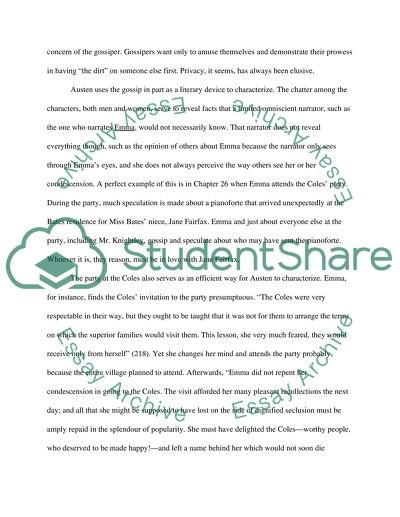Cite this document
(“Emma by Jane Austen Essay Example | Topics and Well Written Essays - 1250 words”, n.d.)
Retrieved de https://studentshare.org/literature/1433543-emma-by-jane-austen
Retrieved de https://studentshare.org/literature/1433543-emma-by-jane-austen
(Emma by Jane Austen Essay Example | Topics and Well Written Essays - 1250 Words)
https://studentshare.org/literature/1433543-emma-by-jane-austen.
https://studentshare.org/literature/1433543-emma-by-jane-austen.
“Emma by Jane Austen Essay Example | Topics and Well Written Essays - 1250 Words”, n.d. https://studentshare.org/literature/1433543-emma-by-jane-austen.


